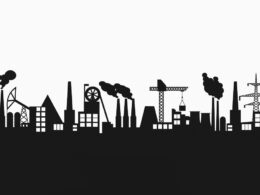By Eddie McCabe
By any reasonable standards capitalism in the 21st century is a disaster. Poverty, war and environmental destruction – all stemming from the profit system – as isolated issues would be testament to that fact, but the combination is lethal.
In the past these problems have been justified by capitalist ideologues by citing the system’s historic role as a force for ‘progress’ in raising productivity and technology to new, higher levels. No doubt its most ardent supporters will continue to peddle that line, but even the OECD can’t see any better than a century of low-growth and stagnation, which will inevitably exacerbate those destructive features.
An alternative to this system is not just desired by billions of people today, but is desperately needed. Socialists and socialist ideas exist not because of great idealist aspirations, but out of necessity. The alternative to capitalism, practically speaking, is socialism. In short, here’s why:
End the rule of the super-rich & big business
We live in a market dictatorship, where power is concentrated in the hands of big business and a small number of wealthy individuals, who rule over a man-made order of inequality. In 2013, according to Oxfam, the $240 billion net income of the world’s 100 richest billionaires could have ended extreme poverty four times over.
This is not a natural state of affairs for any human society, as some would argue, but it is the inexorable logic of the capitalist system that’s based on the exploitation of the producers of wealth; the working class. As James Connolly once remarked, ‘there can be no dignity in labour until labour knows no master’. Neither can their be genuine democracy, freedom or equality.
Socialism means taking the world’s wealth and resources into public ownership, under workers’ control and management, and democratically planning its use to build an environmentally sustainable economy that can raise the living standards of all. Dramatically reducing the working week, to share out the work, would facilitate the participation of more people in the running of society; allowing for progress both culturally and politically as well as in science and technique.
Technology can end want & hunger
Technological development and scientific discovery are often portrayed in ways that focus on the achievements of brilliant individuals, but this obscures the reality that the advances society has made are the result of a collective human ingenuity that includes all of the skills and knowledge amassed by generations. In keeping, as capitalism does, millions of people unemployed and billions in abject poverty, huge swathes of the world’s population are excluded from participation in the collective advancement of society.
In a world without poverty this situation could be transformed and without the influence of profit-driven corporations, science could – in a real way – be geared towards solving problems like climate change or curing diseases (unfortunately oil companies today are threatened by the development of renewable technologies and it’s more profitable for pharmaceutical companies to treat illnesses with pills than it is to cure them), or making discoveries that we haven’t even dreamed of yet.
Organise for socialist change
Movements and organisations that harness working class solidarity and fight against oppression and injustice are essential for real change to be brought about, but they need answers and alternatives to guide the struggle.
If the problem is dictatorship then the solution is democracy. If the problem is the private ownership of the world by that dictatorship then the solution is democratic public ownership. If the problem is a society based on the ruthless, anarchic drive for profit above all else, then the solution is a society based on cooperation and rational planning to meet the needs of all.
The solution is democratic socialism.












